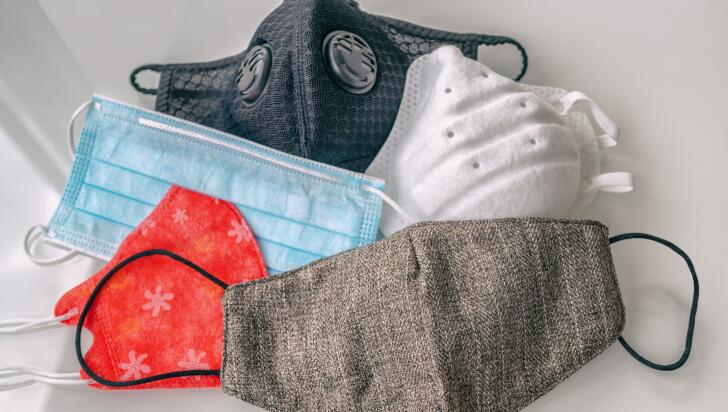In some public areas, the government has encouraged the nation to wear facial protection, but not everyone is advised to do so. Although you will not be shielded by wearing a face mask, it may protect those with whom you come into close contact if you are infected and do not realize it. While most members of the public can wear these masks comfortably, certain individuals are advised not to cover their faces.
In order to monitor the spread of the novel coronavirus, which triggers COVID-19, the Centers for Disease Control and Prevention (CDC), World Health Organization (WHO), and public health authorities suggest wearing face masks. Many different styles of face coverings are now being worn by people, including N95 mask, surgical mask, handmade cloth mask, cloth mask with filter, and neck gaiters.

Because of this mandate, there are probably signs that remind you that you should wear a mask to protect yourself and anyone around you at most shops and public places you frequent go. In slowing the spread of the coronavirus, the CDC has consistently stressed how important face coverings are. They’re not uniformly healthy, however. Owing to complications unrelated to the disease, small classes of people shouldn’t wear face masks.
- Children under two
- Those who may have breathing issues when wearing face coverings
- Person who is impaired or can’t remove the cover without assistance
Children under two
Wearing a face mask whenever we go to a public place has become a part of life for many of us and a constitutionally required in some jurisdictions. However, one notable exception exists in young kids. But how young is too young for a face mask to wear? According to a recent statement from a Japanese medical association, children under the age of 2 could actually be at greater risk of wearing face coverings than they are leaving the house without them.
The CDC states about the considerations on masks that, “Cloth face covers should not be put on young children less than two years of age, anybody who has difficulty breathing, or who is unconscious, impaired or otherwise unable to remove the cover without assistance.” A mask may potentially do more damage than good in these situations.
Moreover, Darrell Spurlock, Jr., Ph.D., Professor of Nursing Science at Widener University, states that masks can be harmful to children under the age of two because they “have narrower, less rigid airways than older children and adults.” He also mentions that they have less “physical strength to fix a problem, such as a mask that has been tied too tightly and slipped around the neck.”

In addition, masks prohibit parents or caregivers from being able to monitor the breathing state of a child, says Spurlock. This is extremely dangerous if there is a respiratory illness already in the child.
Persons who have breathing issues
A mask will make it much more complicated for those who have trouble breathing, which can lead to more complications. However, Leann Poston, MD, points out that people with conditions such as asthma or chronic obstructive pulmonary disease are at greater risk of developing coronavirus complications. Poston recommends that certain people should “stay home if possible,” with both wearing and not wearing a mask posing some danger.
She also recommends that they “check to see which one is easier to breathe through in various types of masks and practice wearing a face mask to minimize any discomfort about it.” A looser mask is better than nothing. “It can interrupt the patterns of exhalation and provide some protection from secretions,” she says.
Persons who are impaired
The risks presented to individuals who are unable to remove masks on their own are comparable, but possibly much more serious, as suffocation is possible.
Suppose your breathing ability is seriously compromised by wearing a mask for your condition, or you are unable to remove a mask on your own. In that case, another alternative is to try to go out early in the morning or late at night, when there will be fewer people and you can properly social distance.
Conclusion
Now we have the knowledge on who shouldn’t wear a face mask on this pandemic. If you have family or friends who belong to this group of people who should not wear a mask, please tell them. It is important that they are protected not only by the coronavirus but also by wearing a mask that could potentially danger them at the time of crisis.
However, if you do not belong in the classes mentioned above, it is vital to wear a mask every time you go out. There are many surgical masks or N95 masks for sale, and you must get one of these as they are listed as one of the best face masks to use to protect yourself on COVID-19.
Louie is the father behind the travel blog Browseeverywhere.com. He has a background in photography, E-commerce, and writing product reviews online at ConsumerReviews24. Traveling full time with his family was his ultimate past-time. If he’s not typing at his laptop, you can probably find him watching movies.


